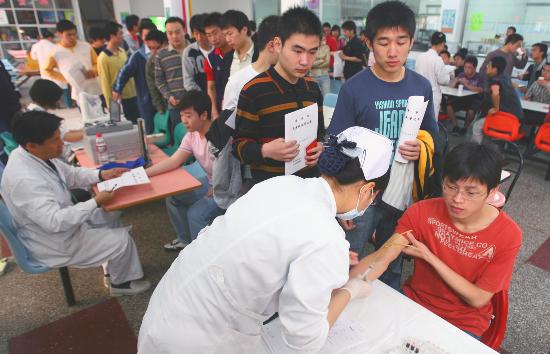Fixing the issue of blood shortage
Beijing has basically solved the problem of an inadequate supply of blood for transfusions – but more steps still need to be taken to completely meet the demand.
 |
|
Beijing has basically solved the problem of an inadequate supply of blood for transfusions. |
Liu Jiang, an official at the Beijing Red Cross Blood Center, said there are several reasons which contribute to insufficient blood supply, such as a lack of regular donors.
Compared to other countries, most blood donated in China is from people who happen to walk by a blood donation vehicle.
Beijing has 27 such vehicles, and 90 percent of blood in the capital is collected this way. But, perhaps unsurprisingly, the amount of blood collected by these random donations fluctuates due to changes including less people walking outside and the weather.
In addition, when there are crowds of pedestrians – for example, during some of the national holidays – the vehicles must leave, due to safety concerns.
The service of staff in these vehicles is also very important. Many donors attach great importance to their first donation experience and will then decide whether to donate again based on the experience.
Particularly high or low temperatures are also not the best conditions for blood donations.
Recently, in order to solve the issue of a shortage of blood supplies, blood centers and hospitals in Beijing have been encouraging patients' relatives to donate blood – offering a sort of exchange of a similar amount of blood, regardless of the type donated.
Beijing is also increasing the number of blood donation stations on the street and extending the operating hours.
Beijing Blood Center has sent text messages to regular donors, urging them to donate again. According to Liu, the suitability of these donors is checked at regular intervals, meaning that these donors are particularly welcome.
 0
0 






